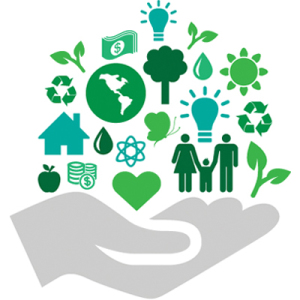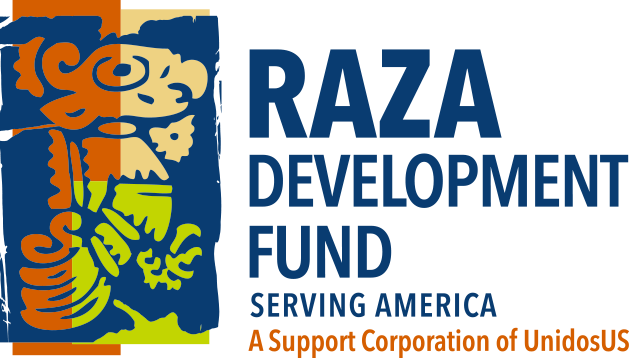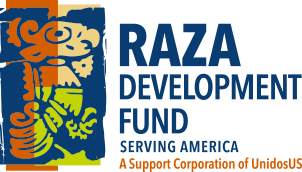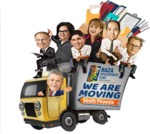6 Key Concepts To Turn A Nonprofit Into A Social Impact Organization

Private companies are considered “for-profit” entities, which clearly outlines their purpose – making money for their shareholders by providing a service people will pay for in a marketplace. Their counterpart “not for profit” entities are more complex, serving multiple stakeholders and aligning themselves to community needs. Yet, their nonprofit label communicates what they are not and offers no clear definition or path for sustainability.
Words are powerful and these connotations often result in demonstrating that nonprofit organizations are not on a level playing field. After all, would calling nonprofits “charitable” and for-profit organizations “uncharitable” work? Probably not.
At Raza Development Fund, we have been working hard to help community-based nonprofit organizations serving Latino and underserved communities rid themselves of the limitations the term nonprofit brings by helping them to make a shift in how they see themselves and their impact on all sectors of society. We prefer to call them social impact organizations because it defines the purpose and value that they bring to the community.
We have made a commitment to help these social impact organizations connect to stakeholders from a position of self-understanding while encouraging them to explore and make new connections to resources that will allow them to maximize their potential.
RDF took lessons learned and focused on the following concepts to support these amazing organizations that play a vital role in sustaining communities.
![]() Nonprofit Is A Tax Status, Nothing Else: The 501c3 or nonprofit tax status carries a benefit that comes with significant responsibility to fulfill a civic duty through an organization’s mission. Still, it should not limit the value social impact organizations can extract from stakeholders who share an interest in and benefit from promoting access to opportunity and thriving communities. This is the underlying premise in all our work with UnidosUS Affiliates.
Nonprofit Is A Tax Status, Nothing Else: The 501c3 or nonprofit tax status carries a benefit that comes with significant responsibility to fulfill a civic duty through an organization’s mission. Still, it should not limit the value social impact organizations can extract from stakeholders who share an interest in and benefit from promoting access to opportunity and thriving communities. This is the underlying premise in all our work with UnidosUS Affiliates.

Value Proposition: A social impact organizations’ ability to demonstrate their Value Proposition to others (government, private, and philanthropic) and be properly compensated from those who benefit will maximize their impact on the communities they serve. Understanding the value proposition in these rapidly changing times is a challenge being faced by many social impact organizations.
![]()
Financial Models: To translate their value to sustainable funding, they must create Financial Models for their service lines that help outline what it costs to accomplish their work – down to the unit level. Only then can they negotiate a grant award, government contract, or foundation award – and communicate their needs from a position of self-understanding and be prepared to seek cost-coverage and a return to help the organization achieve financial sustainability and growth.
![]() Marketing/Storytelling: These two concepts empower social impact organizations to step up and share their value and impact to the communities they serve. Social impact organizations have two currencies – financial and social impact returns. The latter, social impact returns, can and should be translated into language that helps other sectors understand the value they bring to communities with every person they help to become a productive member of society. Telling their story and connecting with their stakeholders from a common language will help them achieve more together.
Marketing/Storytelling: These two concepts empower social impact organizations to step up and share their value and impact to the communities they serve. Social impact organizations have two currencies – financial and social impact returns. The latter, social impact returns, can and should be translated into language that helps other sectors understand the value they bring to communities with every person they help to become a productive member of society. Telling their story and connecting with their stakeholders from a common language will help them achieve more together.
 Social Enterprises: These can be tailor made opportunities for social impact organizations. Their ability to turn profits through these endeavors will only serve to maximize their impact on communities. They need to ensure they have the internal resources and the funding required to make such endeavors work.
Social Enterprises: These can be tailor made opportunities for social impact organizations. Their ability to turn profits through these endeavors will only serve to maximize their impact on communities. They need to ensure they have the internal resources and the funding required to make such endeavors work.
We are currently engaged with several nonprofits in our Affiliate Support Program to help them understand and learn more about social enterprise opportunities and how COVID-19 transformed the traditional nonprofit response and brought value to the social enterprise concept.
If you are an affiliate of UnidosUS and, like many other nonprofit organizations, find yourself at an inflection point looking to expand your impact and develop a growth strategy in challenging times, connect with us for a 15 minute call to see if we can support you. Schedule it here.




